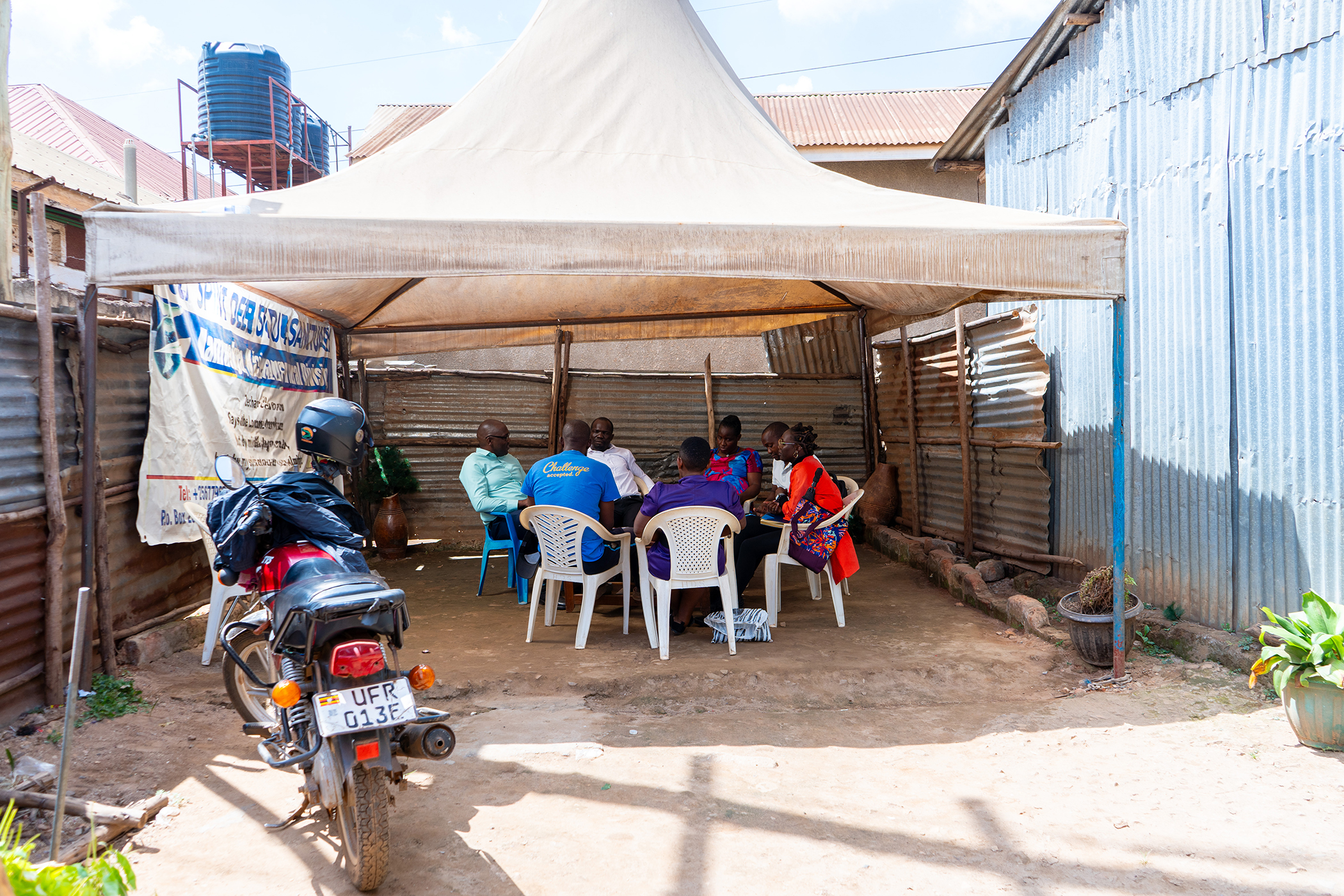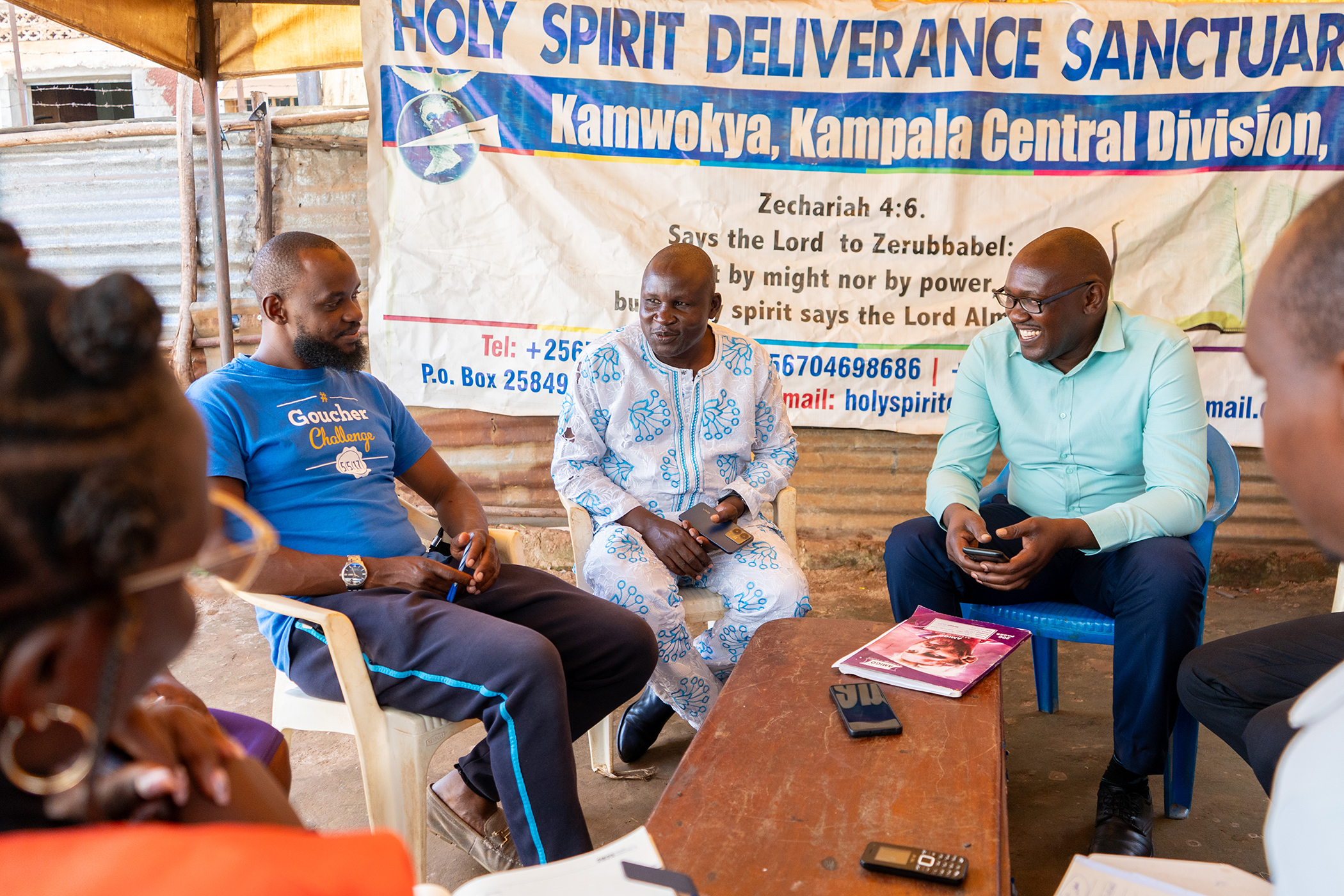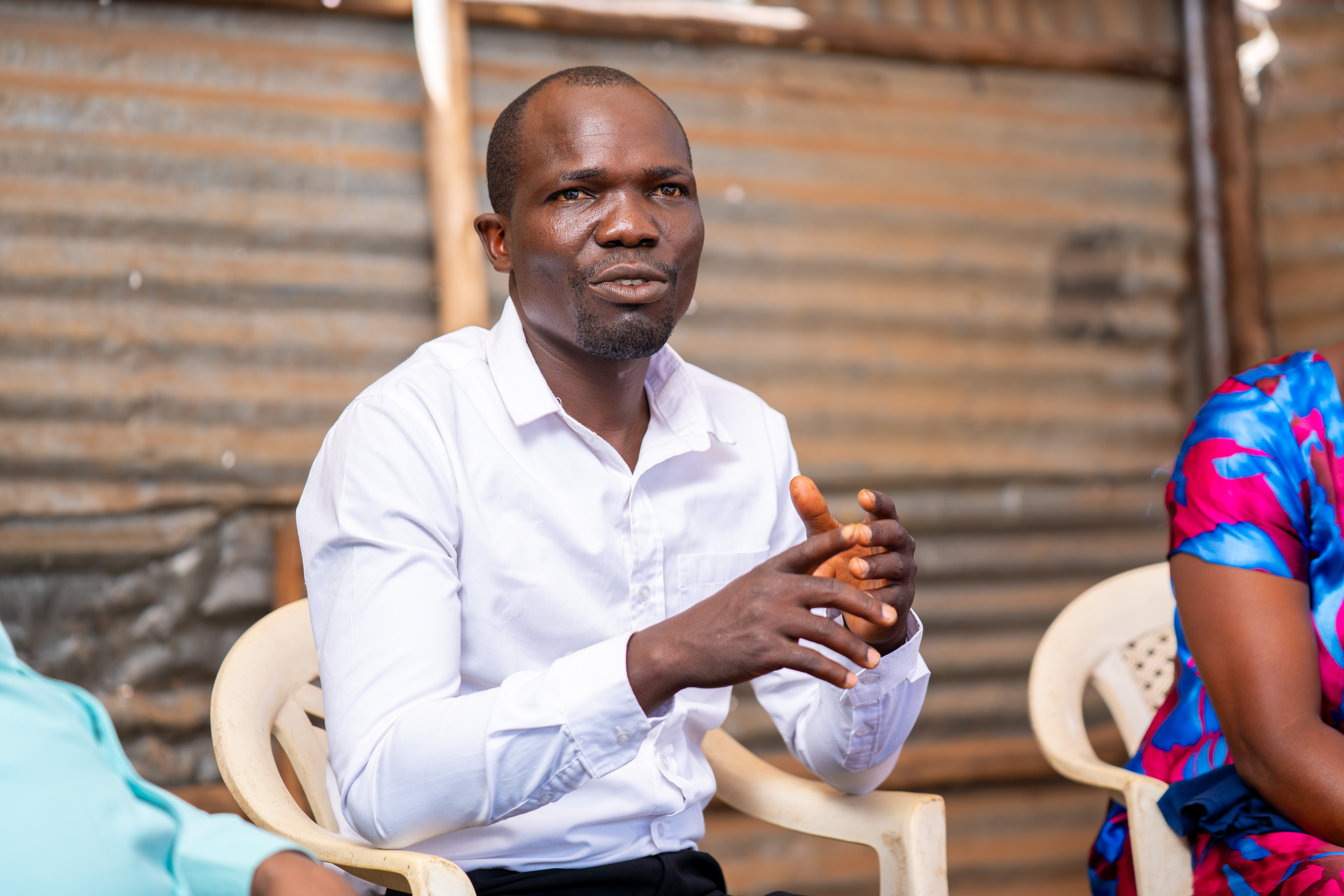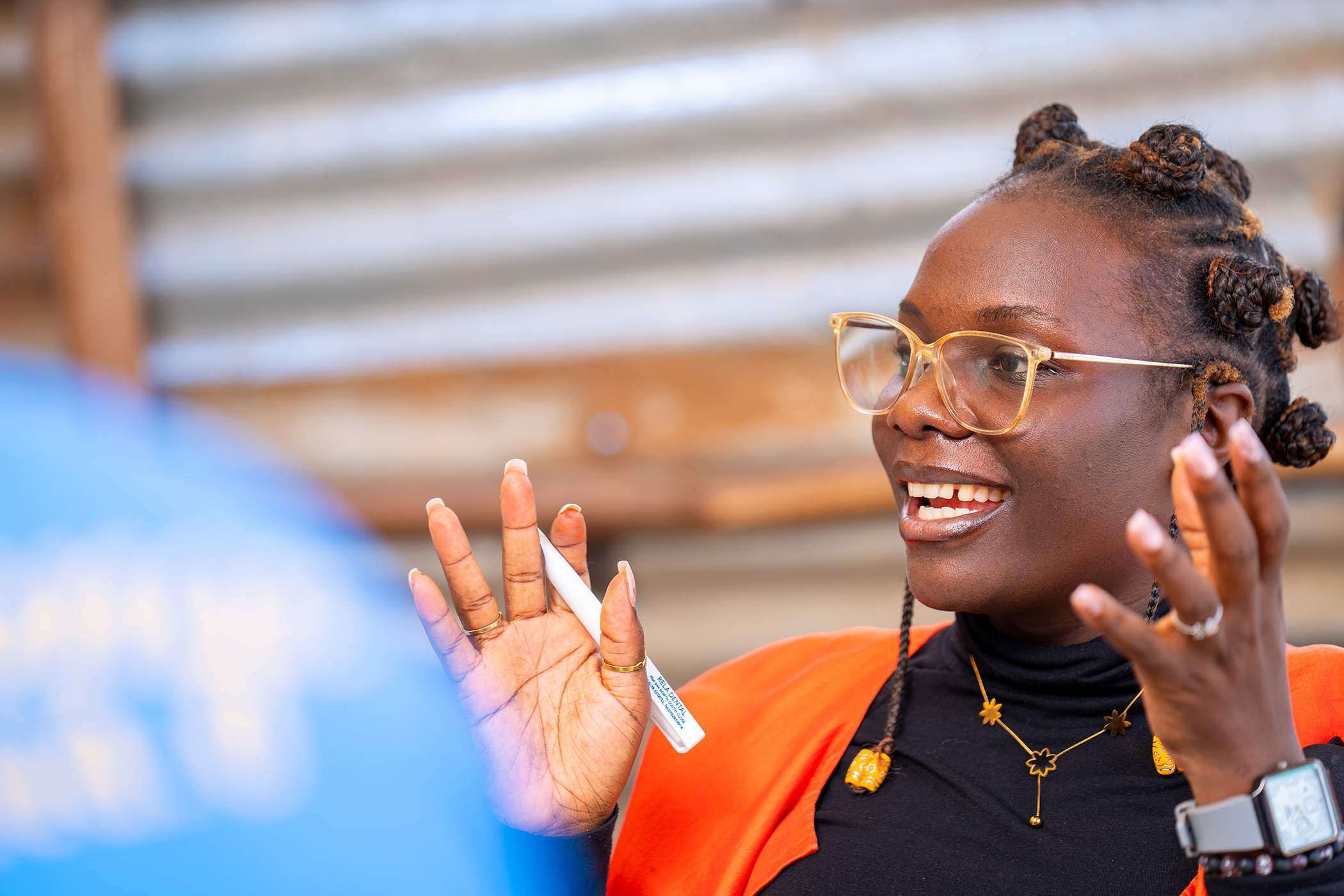Benon Kabale was his mother's 13th child, the “baby” of the family. He grew up in a small town in eastern Uganda. As a star student all the way through school, he received a private sponsorship to attend Makerere, one of Uganda’s best universities.
In 2005, while he was attending university, Kabale experienced his first mental health crisis. At that moment, he became one of the 970 million people globally (or 1 in 8) living with a mental health condition.
During this acute bipolar disorder episode, he was admitted to the hospital. There, workers wrestled Kabale to the ground and injected him with drugs. He woke up naked in a cold seclusion room. “It had no ventilation, no light, no water supply, no toilet facility, and I was neglected. There was no supervision from the medical staff.” Terrified and sick, Kabale was alone for over 24 hours. Over the next few years, Kabale experienced other bipolar disorder episodes. His family, trying their best to help, took him to a traditional healer, who restricted his movement and cut his body to apply herbal treatments. During one episode, he was beaten by other members of the community.
Sadly, Kabale’s’s story is not unique. Persons with psychosocial disabilities are often at greater risk for human rights violations. And because community-based mental health care is lacking in many parts of the world, people like Kabale often end up in psychiatric institutions which are associated with some of the worst of those violations.
Finding Power in Community
 Benon Kabale greets participants arriving for the peer group support meeting in Kamwokya, Holy Spirit Deliverance Church where MHRI operates, in the Kampala Central Division, Uganda in March 2025.
Benon Kabale greets participants arriving for the peer group support meeting in Kamwokya, Holy Spirit Deliverance Church where MHRI operates, in the Kampala Central Division, Uganda in March 2025.
In 2010, after looking for help in a few places, Kabale found his way to a program that empowered persons with disabilities to help each other. He says that while in this program, he immediately realized the power of community-based mental health care. Soon, Kabale began paying home visits to other persons with psychosocial disabilities, “offering psychosocial support, education, and also empowering family members to care for their loved ones.”
That led Kabale to establish the Mental Health Recovery Initiative (MHRI), which runs a peer-to-peer support network, advocates for persons with disabilities, and works to fight stigma and increase acceptance. Kabale says: “I really thought it vital to create a voice within the community that could speak about real issues of mental health, human rights, abuse, and violations, and how best we can support people who are affected. To access justice, and to have a voice within their communities.”
Kabale is now one of Uganda’s most well-known leaders in the mental health space. Hoping to improve mental health care for all Ugandans, he is currently working with the Ministry of Health to develop an implementation plan for mental health support.
However, in 2022, there were only 53 psychiatrists in all of Uganda. And in a country with the second youngest population in the world, only five child or adolescent psychiatrists. That means that while the Ugandan Ministry of Health estimated that as much as 32% of the population had a mental illness, there was approximately one psychiatrist per 1 million people. Importantly, support for persons with psychosocial disabilities must extend beyond professional mental health care to address other factors such as poverty or additional health conditions and illnesses.
Holistically Supporting Persons With Disabilities
In this environment, Kabale says community mental health care is essential. He also believes that it is the best way to holistically support persons with psychosocial disabilities: “Peers are able to live comfortably in community where they are able to afford things like food, accommodation, water, and housing, and this really promotes the recovery of people with mental health conditions. Secondly, there is support and relationships. You find that when someone is in a crisis, mostly the social network is cut off. This affects the relationships between them and their family members, even in the community.”
Kabale’s peer-to-peer communities are life-changing for many persons with disabilities. Edward Tasiwuka says, "When I got in contact with a peer support worker, I learned a lot of things and it helped me to restore hope in my life, to help me to fight stigma, and also to help me to know my triggers and how to avoid those triggers.” Community member Christine Baako Azkuro adds, “It feels like a safe space… you're not the only one going through something and there are other people who understand you.” Kabale says integrating persons with psychosocial disabilities in their communities is critical. “They wake up in the morning and they know they have purpose and their obligations… And for sure, this really promotes someone's recovery.”
Taking His Case To Court
 Benon Kabale works on his laptop in Kampala District, Uganda in March 2025. Kabale established MHRI, which runs a peer-to-peer support network, advocates for persons with disabilities, and works to fight stigma and increase acceptance.
Benon Kabale works on his laptop in Kampala District, Uganda in March 2025. Kabale established MHRI, which runs a peer-to-peer support network, advocates for persons with disabilities, and works to fight stigma and increase acceptance.
Beyond working with the government and building his peer-to-peer network, Kabale is also fighting broadly for the human rights of persons with psychosocial disabilities. In 2015, Kabale, together with the Centre For Human Rights and Development (CEHURD), sued the Ugandan government saying that restraining and secluding people with psychosocial disabilities was a violation of human rights. In 2018, the High Court of Uganda ruled against them, but Kabale and CEHURD have appealed the case. Kabale says that he is “trying to bring to the fore issues of mental health and human rights in Uganda, and how best we can interlink this to international standards.”
As we approach the Global Disability Summit, which will take place in Berlin on April 2-3, it is a good time for all of us to call on governments and the private sector to recognize the rights and inclusion of all persons with disabilities. This past December, for his work in human rights and community mental health, Kabale was honored with the Human Rights Watch Marca Bristo Fellowship for Courageous Leadership in Disability Rights.
Optimistic About The Future
Kabale says he is optimistic about the future, given the adoption by the African Union of a legal framework that protects the rights of persons with disabilities in Africa, and earlier benchmarking of disability rights by the UN. “I think there have been really great strides to ensure that people with mental and physical disabilities are represented. And they feel included, and their views are considered as human rights advocates.”
Kabale says what empowers him day-to-day is the work with peers. As a counselor, he doesn’t just help others — he is “learning from their experiences as well.” What he personally wants to share is that “recovery is possible. You know, even when someone has suffered… So, we should share our stories to inspire.”
 Benon Kabale speaks with Nalutaya Rose during a community peer support visit in Makindye Makindye Division, Kampala District, Uganda in March 2025.
Benon Kabale speaks with Nalutaya Rose during a community peer support visit in Makindye Makindye Division, Kampala District, Uganda in March 2025.
The 2025 Global Disability Summit is cohosted by the International Disability Alliance and the Governments of Germany and Jordan.



